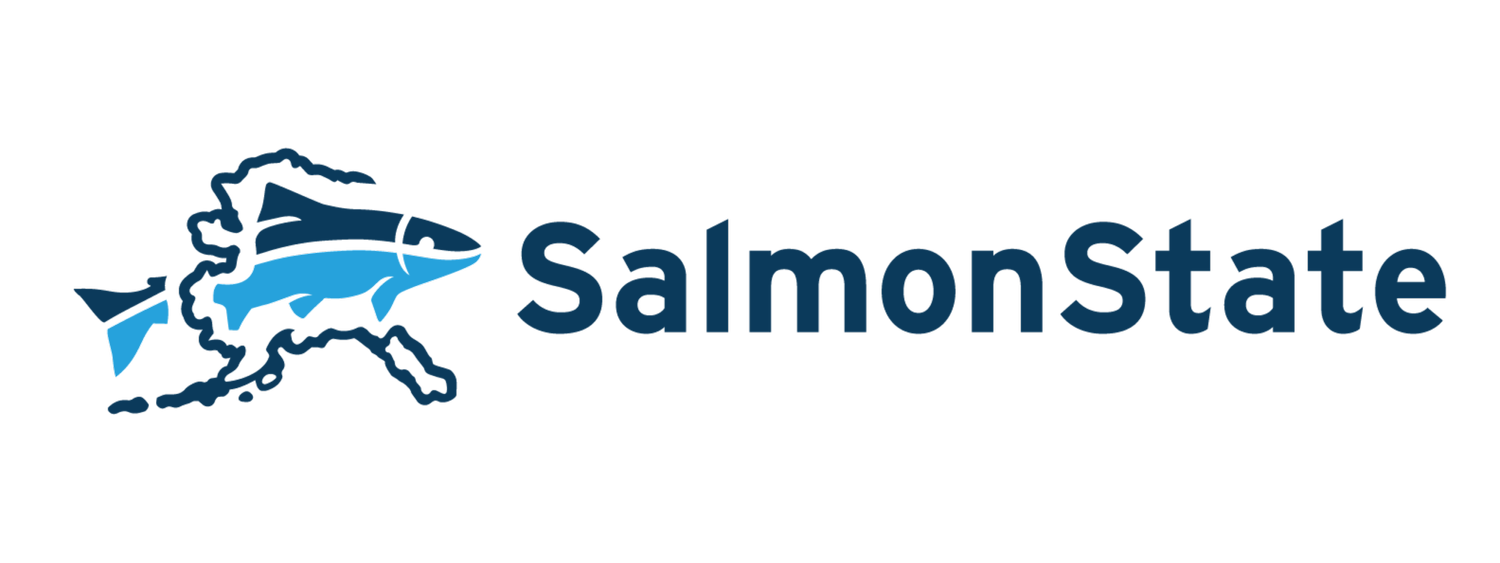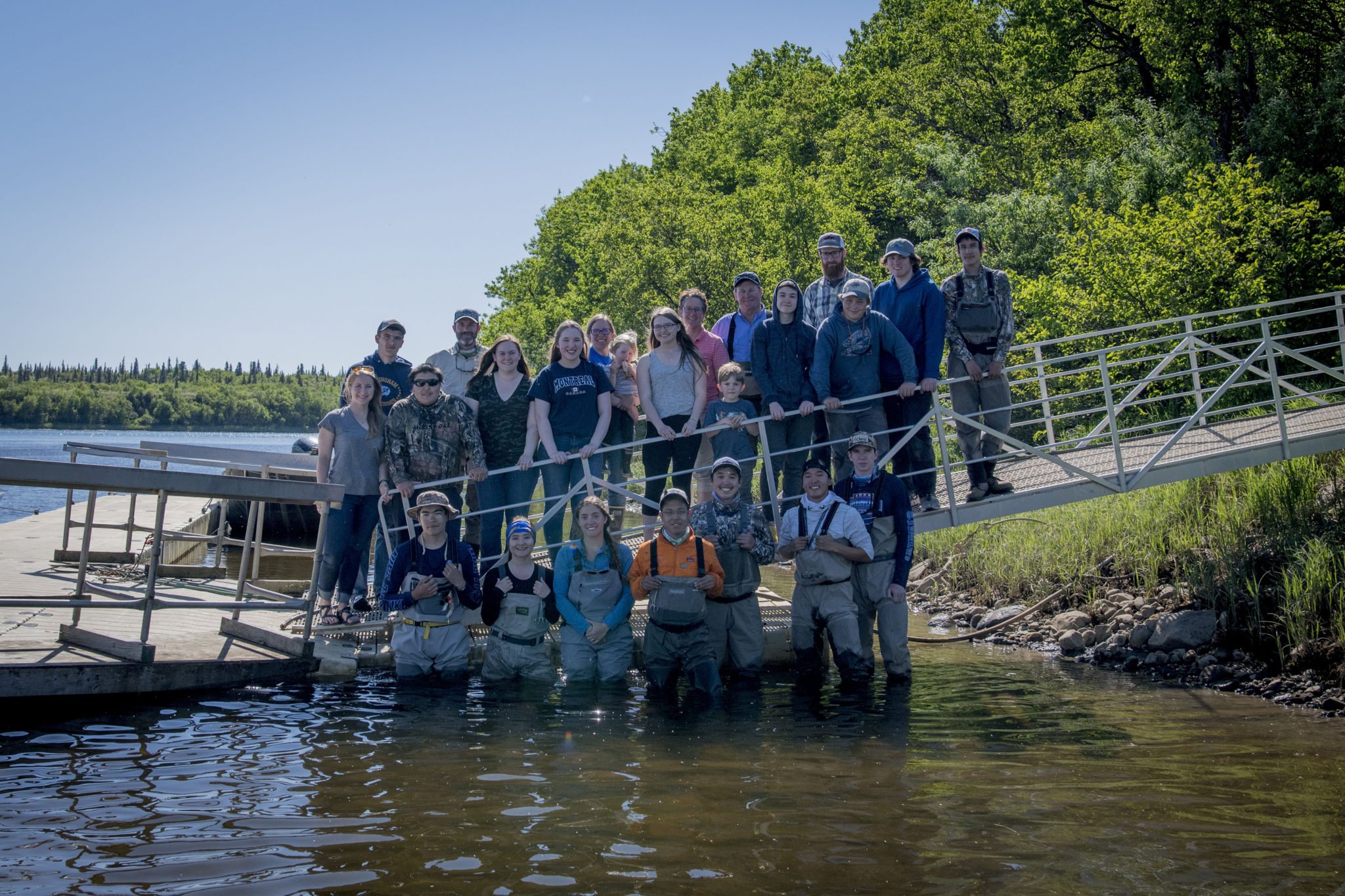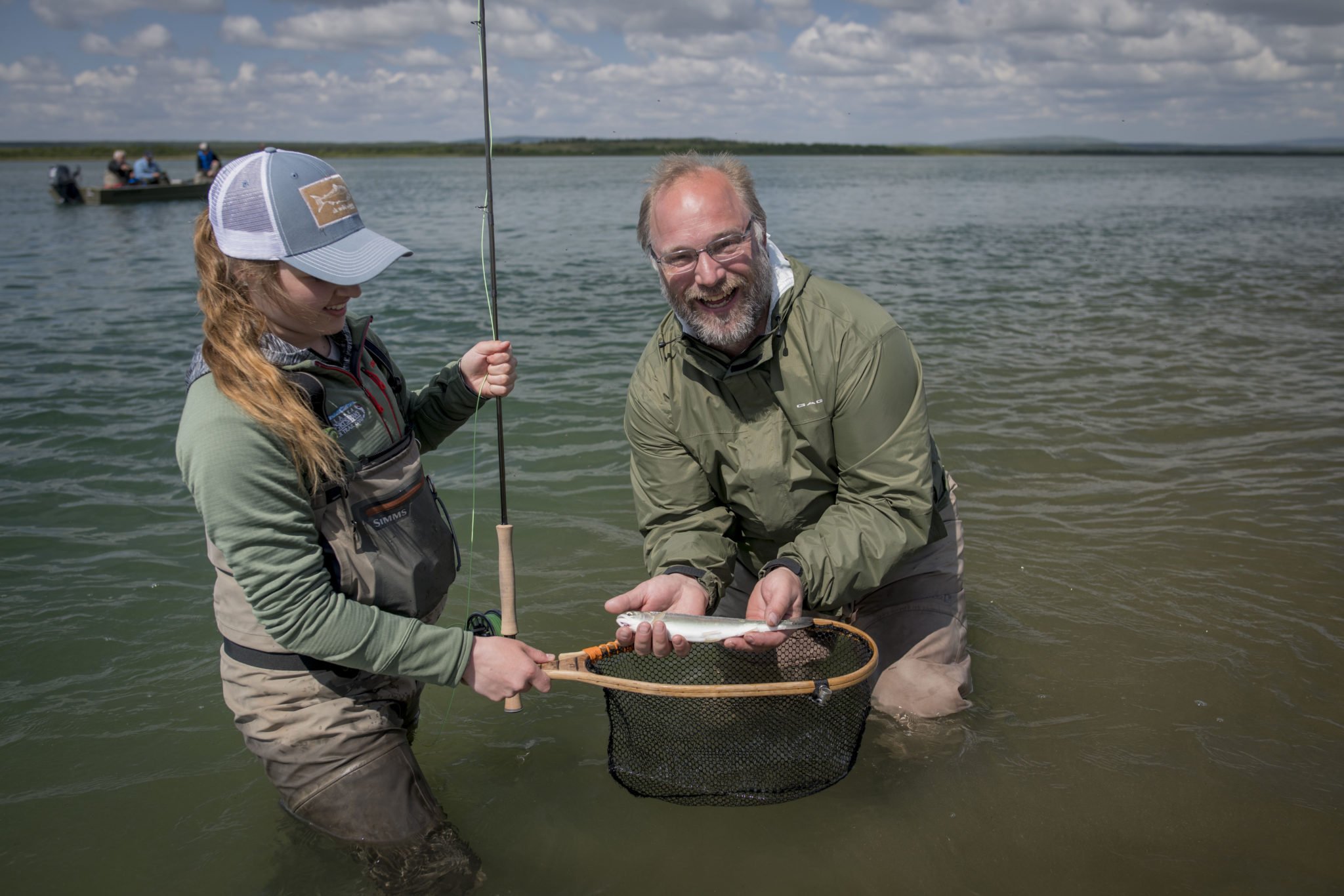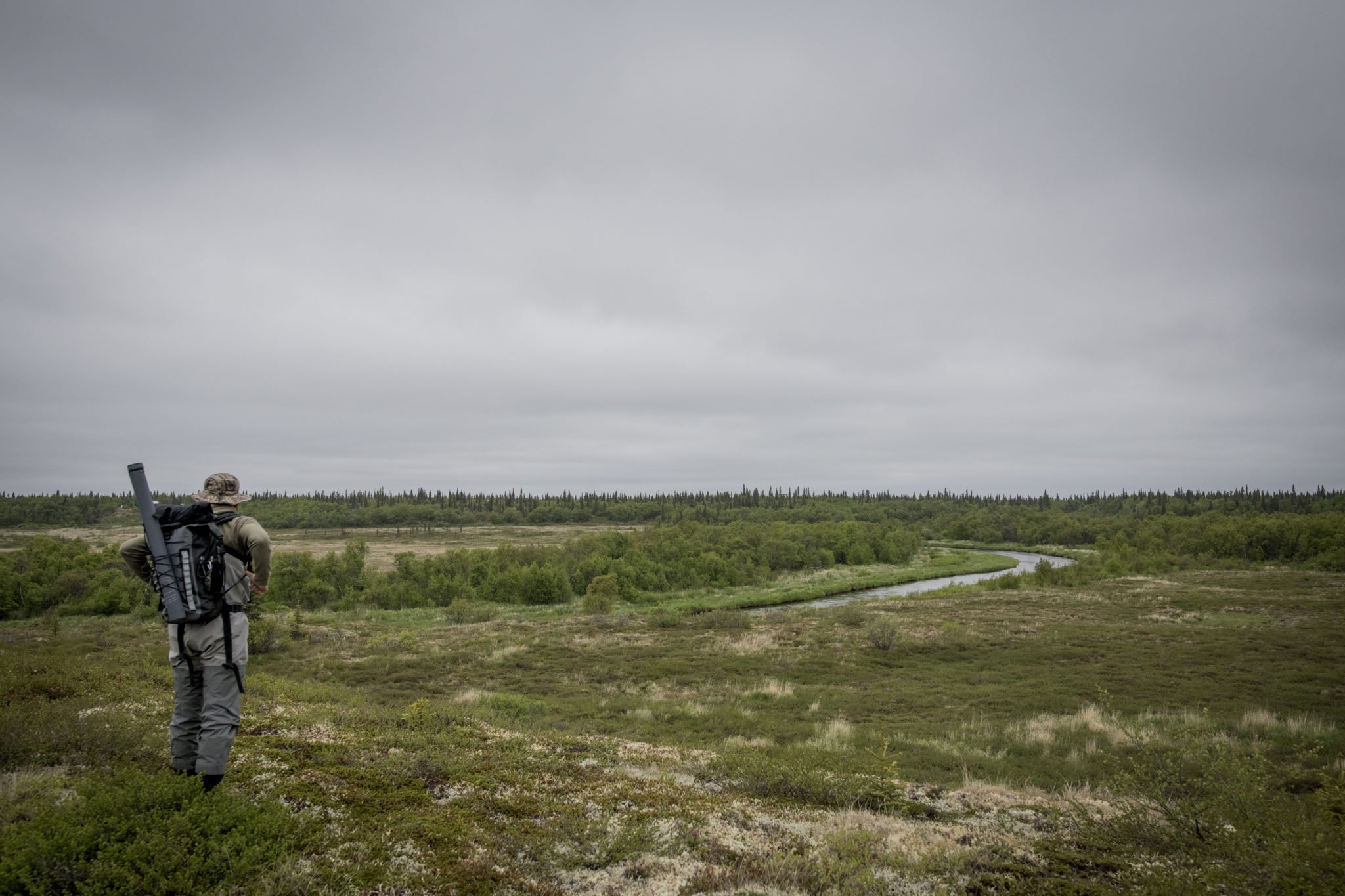Casting for fish, and guides, in Bristol Bay
Cavelila “The Gov” Wonhola and Triston Chaney practice knot tying at Bear Trail Lodge this year during the Bristol Bay Fly Fishing and Guide Academy in King Salmon. Photo by Sarah Miller.
Triston Chaney, a 19-year-old college student raised in Dillingham, knew before this year that he loved fly fishing. What he didn’t know is that he’d love helping other people catch fish, too.
With the help of the Bristol Bay Fly Fishing & Guide Academy, he’ll soon start a job doing just that.
Chaney, who is Athabascan and Yup’ik, is a largely self-taught fly fisherman. He’s been taking his 14-foot flat-bottomed boat up the Wood River to fly fish for years now. The academy, he said, helped him experience new country in his backyard.
The day at the end of the academy when students took clients out fishing, Chaney said, “was really eye-opening for me. I actually loved it. I didn’t think I would like guiding, just because I’m going to be watching people catch fish that I wanted to catch. But I really enjoyed helping them catch fish.”
In late July or early August, he’ll start guiding at Bear Trail Lodge, owned by Heath and Nanci Morris Lyon. It’s an opportunity for which he said he’s very thankful, especially as he’s likely moving toward guiding as an occupation,
The Bristol Bay Fly Fishing and Guide Academy class of 2018 poses at Bear Trail Lodge. Photo by Sarah Miller.
More than a dozen graduates of the academy are employed at Bristol Bay lodges like Bear Trail. Sometimes the students had never even touched a fly rod prior to the academy, said Trout Unlimited Alaska Program Communications Director Jenny Weis and Director Nelli Williams.
Sixteen-year-old Abbey Whitcomb, who also grew up in Dillingham, is one of those who started out this year at the academy with less experience fly-fishing — though, through her family, she’s been around sport, subsistence and commercial fishing her entire life.
Abbey Whitcomb and her client, Naknek resident Bryon Singly, pose with a small rainbow on the Naknek River. Photo by Sarah Miller.
“They taught us how to do everything on our own, like tying flies and knots. Everyone there was super nice and helpful,” she said, adding that she thinks the experience will be useful “for anything in Bristol Bay, whether it be fishing or job-related.”
More than 100 students have attended over the last decade — 2018 is the 10th year of the program — all of whom are either Bristol Bay residents or BBNC shareholders or descendants, said Weis. Students attend for free. The academy is open to kids and young adults ages 14-24, but they try to prioritize older students who are closer to employment age. Even if students don’t end up guiding, they can use the academy’s lessons in job preparedness (like how to create a resume or do a job interview), or in conservation and customer service.
Triston Chaney scopes out fishing potential at Moraine Creek on the sportfishing opener in Bristol Bay. Photo by Sarah Miller.
“Even if a student decides guiding isn’t for them, they still gain tools they can use,” Weis said.
“There are so many long-term benefits to the academy beyond the fishing skills they’ll learn. Employing local academy graduates in the many lodges across the region keeps more tourism revenue in local communities and strengthens the salmon-based economy,” Williams said. “Another benefit is providing the students with knowledge about the rivers and fisheries here, as they’ll soon become the leaders who will need to address the tough conservation challenges faced by the region.”
The academy is organized by Bristol Bay Heritage Land Trust, Bristol Bay Native Corporation and Trout Unlimited’s Alaska Program, with support from UAF-Bristol Bay Campus, the Bureau of Land Management, Orvis, Bristol Bay Economic Development Corporation, Bristol Bay Native Association, “and dozens of additional sponsors.”
For more information about the Bristol Bay Fly Fishing & Guide Academy, go to https://bristolbayriveracademy.org/.




